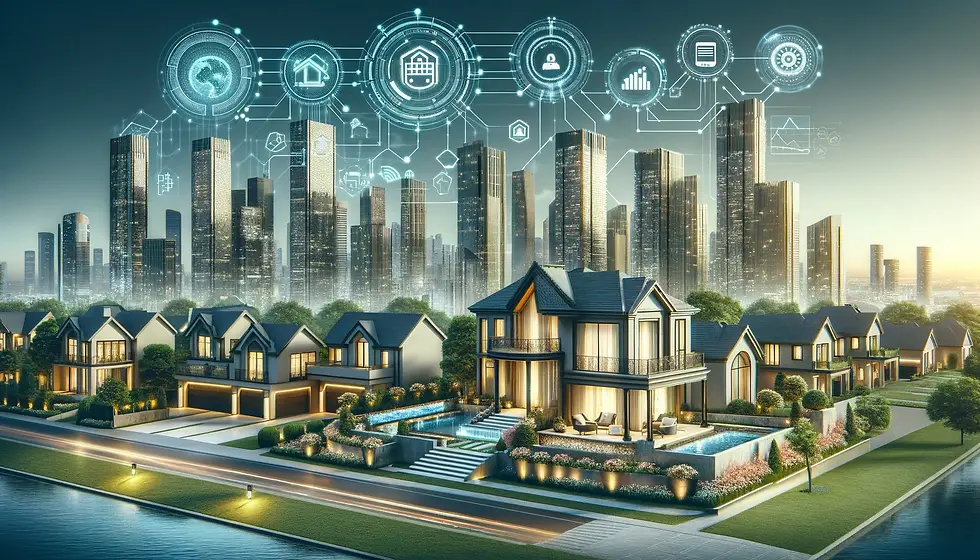Trends in Luxury Real Estate Investments and the Role of AI & Automation
- Ubiks
- Jun 4, 2024
- 2 min read

Introduction
The luxury real estate market is an ever-evolving landscape, driven by economic factors, consumer preferences, and technological advancements. In recent years, the integration of AI and automation has revolutionized how investments in this sector are approached, managed, and optimized. This blog delves into the current trends in luxury real estate investments and explores how AI and automation are enhancing the process.
Current Trends in Luxury Real Estate Investments
1. Sustainable and Eco-Friendly Properties
As environmental awareness grows, luxury buyers are increasingly seeking properties with sustainable features. These include energy-efficient designs, green building materials, and smart home technologies that reduce carbon footprints.
2. Urban Luxury Living
Urban areas continue to attract high-net-worth individuals, leading to a surge in luxury high-rise developments. These properties often feature state-of-the-art amenities, panoramic city views, and prime locations near cultural and business hubs.
3. Technology-Integrated Homes
Smart homes equipped with the latest technology are in high demand. Features such as automated lighting, climate control, security systems, and entertainment options offer convenience and enhance the living experience.
4. Wellness-Oriented Spaces
There is a growing emphasis on health and wellness in luxury living. Properties that include wellness amenities like home gyms, spas, meditation rooms, and outdoor spaces for physical activities are particularly attractive.
5. Remote Work Adaptations
The shift towards remote work has influenced luxury real estate trends. Homes with dedicated office spaces, high-speed internet connectivity, and environments conducive to productivity are now more desirable.
The Role of AI and Automation in Luxury Real Estate Investments
1. Predictive Analytics
AI-driven predictive analytics help investors identify emerging market trends and make informed decisions. By analyzing vast amounts of data, AI can forecast property values, rental yields, and potential ROI with high accuracy.
2. Enhanced Customer Experience
AI-powered chatbots and virtual assistants provide personalized experiences for potential buyers. These tools can answer queries, schedule viewings, and even offer virtual tours, making the property search process more efficient and engaging.
3. Automated Property Management
Automation streamlines property management tasks such as maintenance scheduling, tenant communications, and rent collection. This reduces the administrative burden on property owners and enhances operational efficiency.
4. Smart Home Integration
AI and automation technologies enable the seamless integration of smart home features. From voice-activated controls to automated energy management systems, these innovations enhance the functionality and appeal of luxury properties.
5. Investment Portfolio Optimization
AI algorithms can analyze an investor’s portfolio to recommend diversification strategies and identify high-performing assets. This helps investors maximize returns and minimize risks in their luxury real estate investments.
6. Virtual Reality and Augmented Reality
VR and AR technologies, powered by AI, provide immersive property tours and visualizations. Potential buyers can explore properties remotely, experiencing detailed layouts and designs without the need for physical visits.
Conclusion
The luxury real estate market is rapidly evolving, with trends driven by sustainability, technology, wellness, and the changing nature of work. AI and automation are playing a pivotal role in transforming how investments in this sector are approached and managed. By leveraging these technologies, investors can make more informed decisions, enhance property management, and create superior living experiences for high-end buyers.
----------------------------------
"Treats to Try:"
Business Management:
ZohoOne: https://go.zoho.com/tST
Finance and Investing:
FinViz: https://finviz.com/?a=254934285
Tradingview: https://www.tradingview.com/?aff_id=134411



Comments